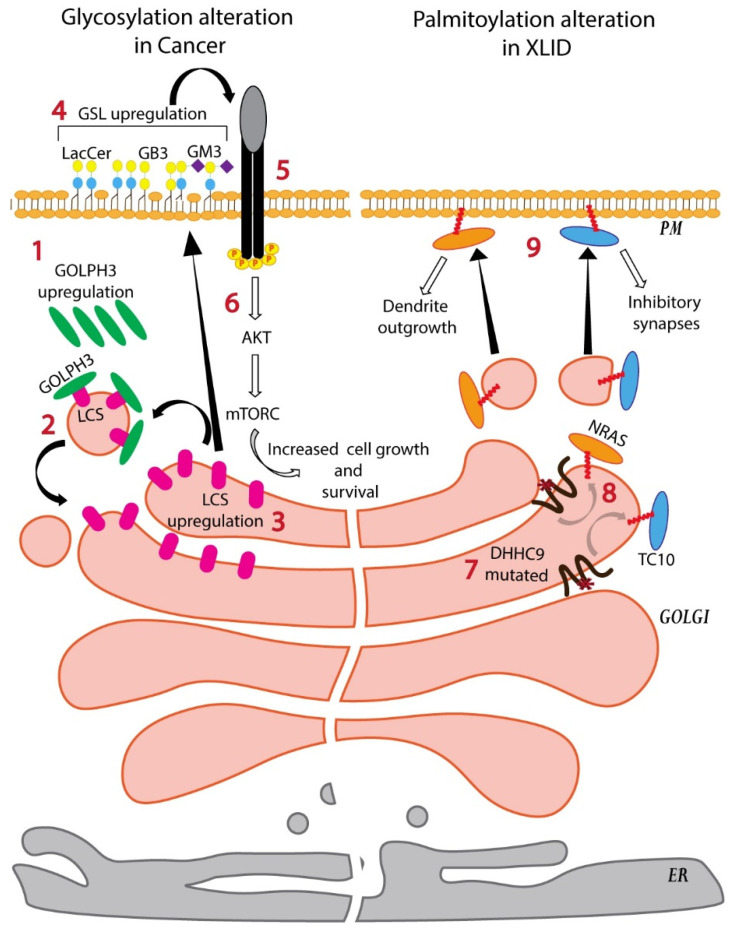Figure 5.
Impaired Golgi processing results in pathological conditions. The peripheral membrane protein GOLPH3 is upregulated in several solid tumours and promotes mitogenic signaling and cell proliferation (1). GOLPH3 binds LCS and a subset of other GSL biosynthetic enzymes, and promotes their entry into COPI vesicles for intra-Golgi retrograde trafficking and thus preventing their transport to lysosomes (2). This increases the levels of these enzymes in the Golgi thus promoting the biosynthesis of GSLs (3). Increased GSLs in the PM (4) likely increase the activity receptors in the PM (5) and that lead to increase mTOR signaling in the cell and increased cell growth (6). The palmitoyltransferase DHHC9 controls both dendrite outgrowth and inhibitory synapses in neurons and therefore its activity is required to maintain a balance between excitatory and inhibitory synapses. It acts by palmitoylating the GTPases NRAS and TC10, respectively, and localizing them to PM. Loss-of-functions mutations in DHHC9 found in patients with X-linked intellectual disability (XLID) (7) impairs the palmitoylation of NRAS and TC10 (8) and likely affects their PM localization (9). This impairment likely contributes to XLID and epilepsy.

